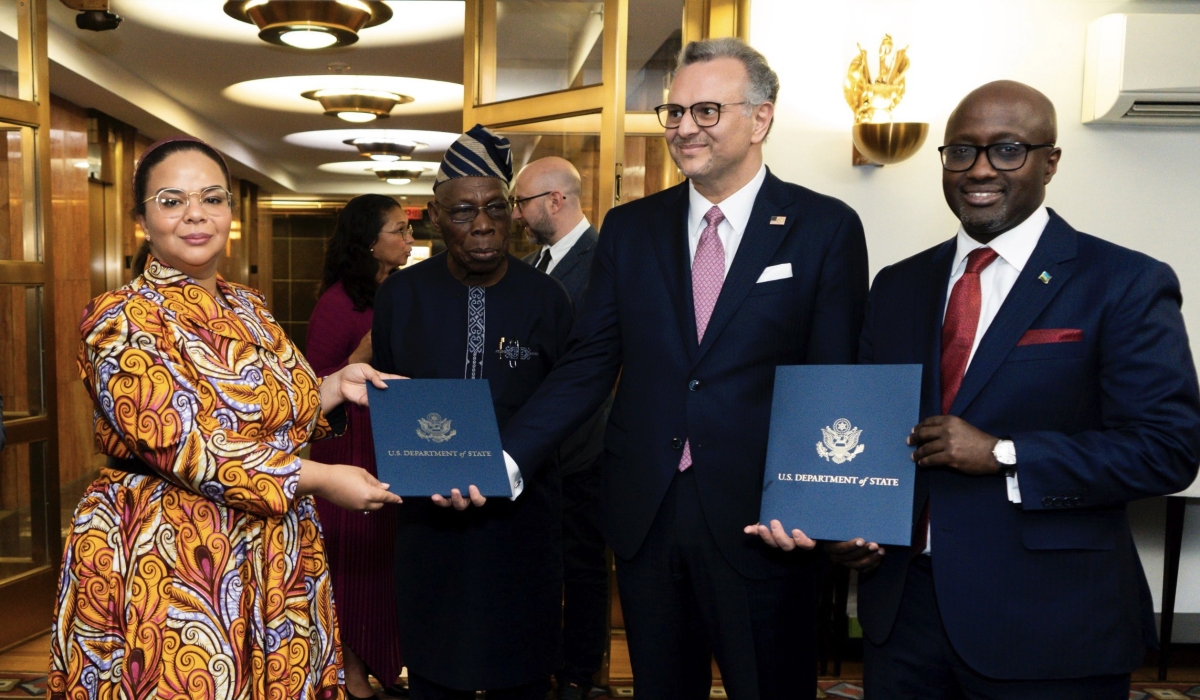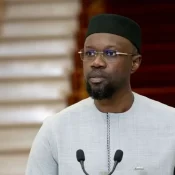
Rwanda-DR Congo peace proposal received by the US
The United States government, which mediators attempts to end the ongoing conflict in eastern DR Congo, announced Monday, May 5, that it has received the draft of a peace accord between Rwanda and DR Congo.
The Minister of Foreign Affairs and International Cooperation, Ambassador Olivier Nduhungirehe, informed the national broadcaster RBA on Sunday that Rwanda has to sign the statement of principles for the draft peace accord, which was signed in Washington on April 25.
Massad Boulos, the Senior Advisor for Africa to US President Donald Trump, posted on X on Monday, saying, “I welcome the draft text on a peace proposal received from both DR Congo and Rwanda.”
Boulos said, “I rely on their continued commitment to achieving peace, and this is a significant step toward fulfilling the commitments made in the Declaration of Principles.”
It is anticipated that President Paul Kagame and his Congolese counterpart Félix Tshisekedi would sign the peace deal in June, with US President Donald Trump present at the White House.
Rwanda has contributed to this document, which will be negotiated by specialists in the next few days. According to Nduhungirehe, a second ministerial conference is anticipated to take place in Washington during the third week of May.
After that, he stated, the peace deal will be completed and presented to the heads of state for signature around the middle of June.
Leaders of the nations that served as crisis mediators, such as Sheikh Tamim ibn Hamad Al Thani, the Emir of Qatar, Emmerson Mnangagwa of Zimbabwe, Faure Gnassingbé of Togo, the African Union-appointed mediator, and President William Ruto of Kenya, will also be present at the signing ceremony.
With the US administration, the two nations are anticipated to negotiate separate bilateral economic accords in addition to the peace pact.
On April 25, Rwandan and Congolese foreign ministers signed the Declaration of Principles, which launched a peace process to bring stability to the eastern Democratic Republic of the Congo and the larger Great Lakes area, which has long been affected by the conflict’s aftereffects.
Both parties pledged to settle disagreements amicably and through conversation in the declaration, which also reiterated their respect for one another’s sovereignty and territorial integrity.
Before signing the deal, the United States has made it clear that both sides need to fulfill a number of requirements. These include the DRC’s need to completely resolve Rwanda’s security issues, including disbanding the FDLR, which committed genocide.
Reforms to internal governance, such as equitable resource allocation among its regions, are also anticipated in DR Congo.
During the declaration of principles, both parties acknowledged each other’s security concerns, Nduhungirehe emphasized that security issues are still of utmost importance and that there is no short cut to peace.
Since the FDLR genocidal force has been a security threat for the past 30 years and is still active in eastern Democratic Republic of the Congo, where it is embedded in the Congolese army, we decided in that document to implement a joint security mechanism that would assist us in resolving those issues, the minister stated.
“We hope that this new peace momentum will allow us to truly address the FDLR issue.”
These criteria will be implemented under the supervision of a monitoring committee that includes officials from the United States, Qatar, France, and Togo.
Togo is leading the effort to facilitate the process moving ahead, and the African Union has officially taken over the leadership of the negotiations that were previously carried out within the EAC-SADC framework.
All Categories
Recent Posts
Tags
+13162306000
zoneyetu@yahoo.com



